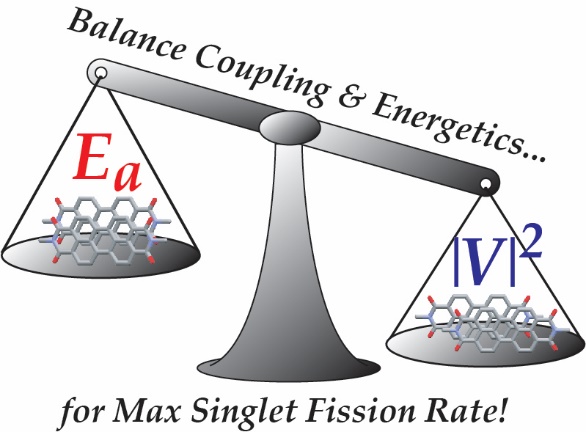
Singlet fission is a process wherein an energetically excited electron in an organic crystal uses its energy to excite multiple electrons on neighboring molecules. Singlet fission can potentially be used to boost the performance of light harvesting systems such as solar cells and photocatalysts, yet designing materials that undergo this process in high yield remains a key challenge.
Led by chemistry graduate students Aaron Le and Jon Bender, members of the Roberts lab have devised a series of perylenediimide compounds that undergo singlet fission with nearly 90% yields. In this work, recently published in the Journal of the American Chemical Society, functional groups were used to carefully control the arrangement of perylenediimides in solid films, forcing them into structures predicted to be optimal for fission. As perylenediimides are inexpensive, photostable dyes commonly used in paints, this work represents a key step towards making singlet fission based electronics a reality.









